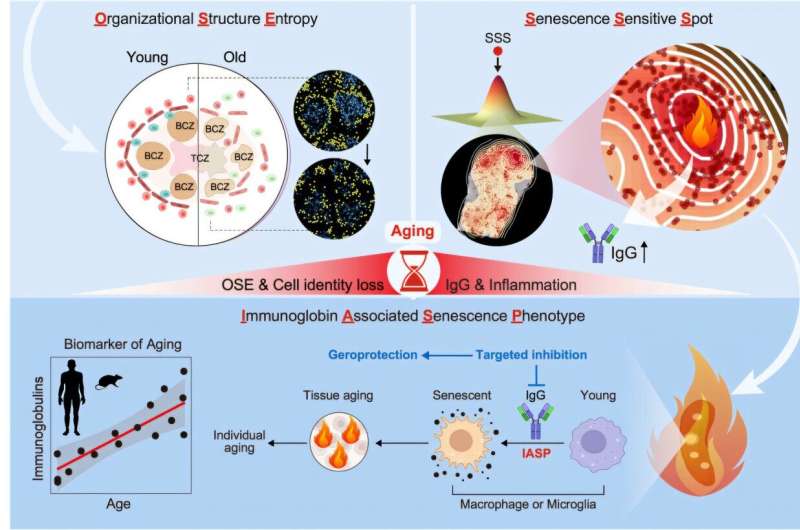Title: Groundbreaking Research Unveils the Role of Immunoglobulins in Aging Process

Alayaran.com - November 5, 2024 - In a significant leap forward for aging research, a collaborative team from the Chinese Academy of Sciences (CAS) and BGI Research has detailed how immunoglobulins might play a pivotal role in the aging process. Published in the prestigious journal Cell, this study not only maps the aging process across various organs but also proposes new strategies for managing age-related decline.
The study, led by researchers including Professor Liu Guanghui from the Institute of Zoology (IOZ) of CAS, has charted what they term the "Gerontological Geography" (GG) of aging. By analyzing millions of spatial spots in nine organs of male mice, the team created high-precision spatial transcriptomic maps that reveal the intricate spatial distribution of over 70 cell types, highlighting how aging disrupts tissue structure and cellular identity.
"This landscape is a significant step forward, pinpointing the epicenters of aging within multiple organs and uncovering the accumulation of immunoglobulins as a key aging characteristic and driver," Professor Liu explained.
The researchers introduced the concept of Organizational Structure Entropy (OSE) to measure the disorder in aging tissues, finding that increased entropy and loss of cellular identity are universal signs of aging. They identified specific areas, termed Senescence-Sensitive Spots (SSS), where aging effects are most pronounced, particularly in immune organs where plasma cells and other specialized cells dominate.
One of the most intriguing findings was the accumulation of immunoglobulin G (IgG) in various tissues during aging in both humans and mice. This suggests that IgG could serve as a novel biomarker for aging. Experiments showed that IgG not only accumulates but also directly induces aging in macrophages and microglia, leading to inflammation and further aging effects. In a dramatic demonstration, injecting IgG into young mice accelerated aging in multiple organs.
In response to these findings, the team developed an intervention using antisense oligonucleotides (ASO) to reduce IgG levels in tissues, which successfully delayed aging in several organs, opening potential new avenues for anti-aging treatments.
"This study is the first to map the spatial transcriptome of pan-organ aging in mammals, revealing tissue structural disorder and loss of cellular identity as key aging hallmarks," said Professor Liu. The research introduces the Immunoglobulin-associated Senescence Phenotype (IASP), which could revolutionize how we approach aging and age-related diseases.
The implications of this research extend beyond academic interest, potentially impacting healthcare strategies for aging populations worldwide. With further studies, the findings could lead to new therapeutic strategies aimed at slowing or reversing some aspects of aging.
For more details on this groundbreaking research, visit Cell's website.
